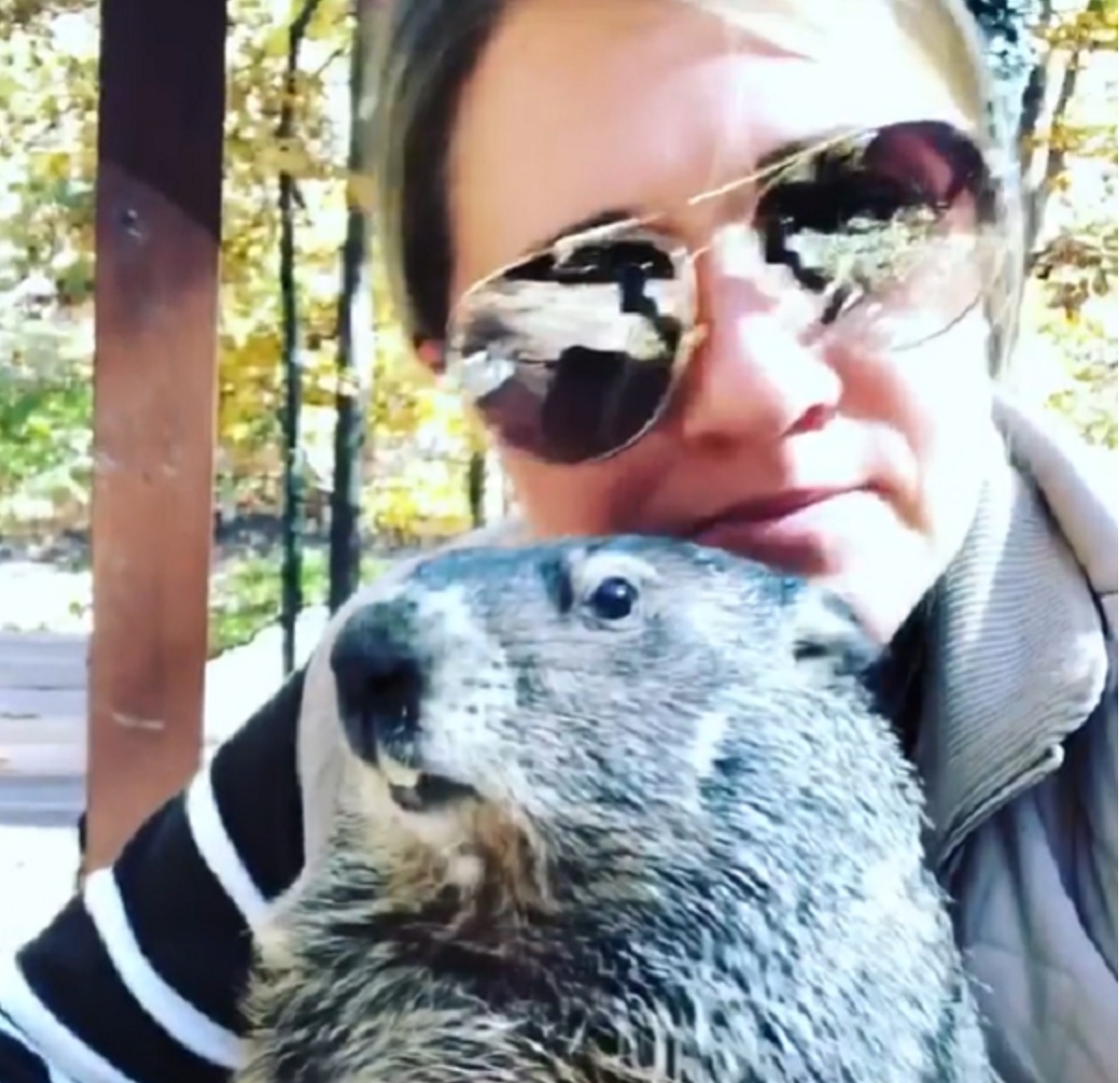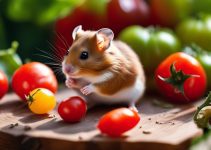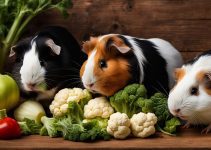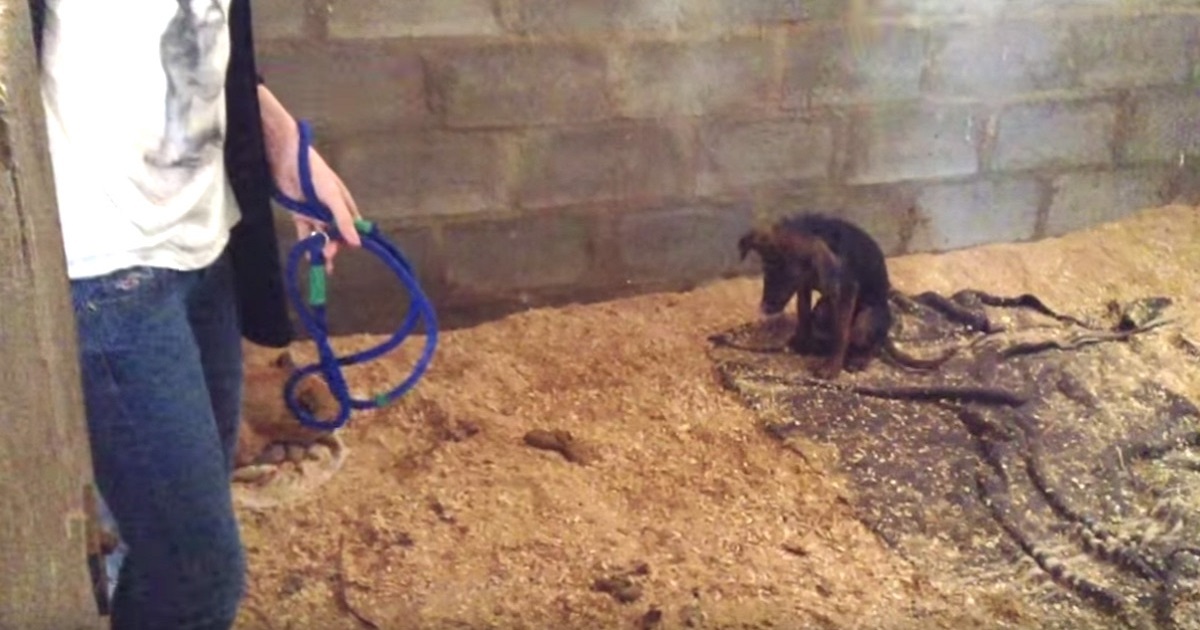Gerbils have specific nutritional needs that must be met to ensure their health and well-being. As a responsible gerbil owner, it’s important to understand their dietary requirements and choose the best food options for them. So, what do Gerbils eat?
When it comes to gerbil food choices, it’s crucial to provide a diet that contains appropriate levels of protein, fat, and carbohydrates. While there isn’t extensive research on gerbil nutrition, studies suggest that young gerbils and nursing mothers have higher protein requirements than adult, non-breeding gerbils. To maintain a healthy diet, it’s important to avoid excessive protein or fat content, as it may lead to imbalances in their overall nutritional intake.
Gerbils primarily consume carbohydrates in the form of grains, seeds, vegetables, and fruits. However, their diets should not be high in fiber like rabbits or guinea pigs. It’s crucial to provide them with access to fresh drinking water and moisture-rich snacks to ensure they stay hydrated.
When choosing gerbil food, it’s best to avoid artificial colors and dyes, as they provide no nutritional benefits and may have unknown risks. A balanced gerbil diet should consist of lab blocks or pellets, seed mix, and fresh fruits and vegetables. Carefully balancing the proportions of each food type will help ensure that your gerbil gets all the necessary nutrients.
What Do Gerbils Eat
- Gerbils have specific nutritional needs, including appropriate levels of protein, fat, and carbohydrates.
- Young gerbils and nursing mothers require higher protein content in their diet.
- Gerbils rely on carbohydrates from grains, seeds, vegetables, and fruits.
- Fresh drinking water and moisture-rich snacks are essential for their hydration.
- Choose gerbil food without artificial colors or dyes.
Gerbil Nutritional Requirements
Gerbils have specific macronutrient requirements in their diet. To ensure their health and well-being, it is important to understand their nutritional needs in terms of protein, fat, and carbohydrates.
Protein Requirements for Gerbils: Protein is an essential component of a gerbil’s diet, particularly for young gerbils and nursing mothers. A young gerbil’s diet should ideally contain 16% to 20% protein, while adult gerbils require 12% to 16% protein. It is recommended to avoid foods with protein content exceeding 20% to prevent imbalances in their nutritional intake.
Fat Requirements for Gerbils: There are no specific minimum or maximum fat intake guidelines for gerbils. However, it is generally recommended that gerbil diets contain 5% to 7% fat, with a maximum limit of 9%. Balancing fat intake is important to maintain their overall health.
Carbohydrate Requirements for Gerbils: Carbohydrates make up the majority of a gerbil’s diet, typically comprising 75% to 85% of their food intake. Gerbils obtain carbohydrates from grains, seeds, vegetables, and fruits. It is important to ensure that their diet is not high in fiber, as their digestive system is not designed to process large amounts of fiber. The fiber content in a gerbil’s diet should be limited to a maximum of 12% to 15%.
By understanding and meeting these nutritional requirements, gerbils can thrive and lead healthy lives.
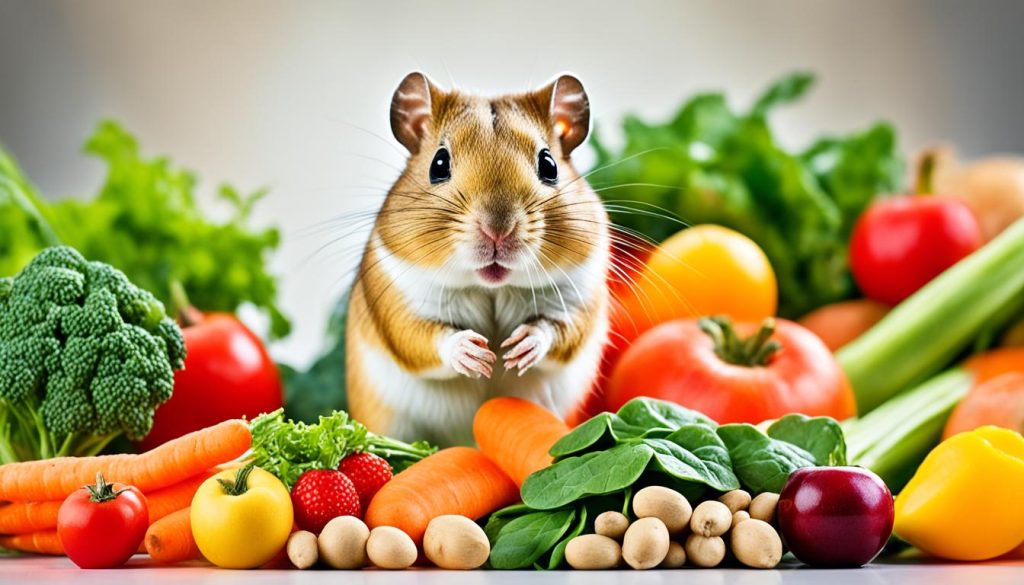
Special Dietary Considerations for Gerbils
When it comes to the diet of young gerbils and nursing mother gerbils, there are some special considerations to keep in mind. These stages of a gerbil’s life have different nutritional requirements that should be met to support their growth, development, and overall health.
Young gerbils, just like human babies, have higher protein needs than adult gerbils. Their diet should contain between 16% to 20% protein to ensure proper nourishment. Protein is essential for their muscle development and overall growth.
Nursing mother gerbils also require more protein in their diet. This is because they need to produce milk to feed their young, which requires additional nutrients. To support their lactation, their diet should also contain 16% to 20% protein.
In addition to protein, it’s crucial to balance the fat and carbohydrate content in the diet of young gerbils and nursing mothers. Too much fat can lead to weight gain and adverse health effects, while an excessive carbohydrate intake can disrupt their nutritional balance. Care should be taken to provide a well-rounded diet that meets their needs without overloading them with unnecessary nutrients.
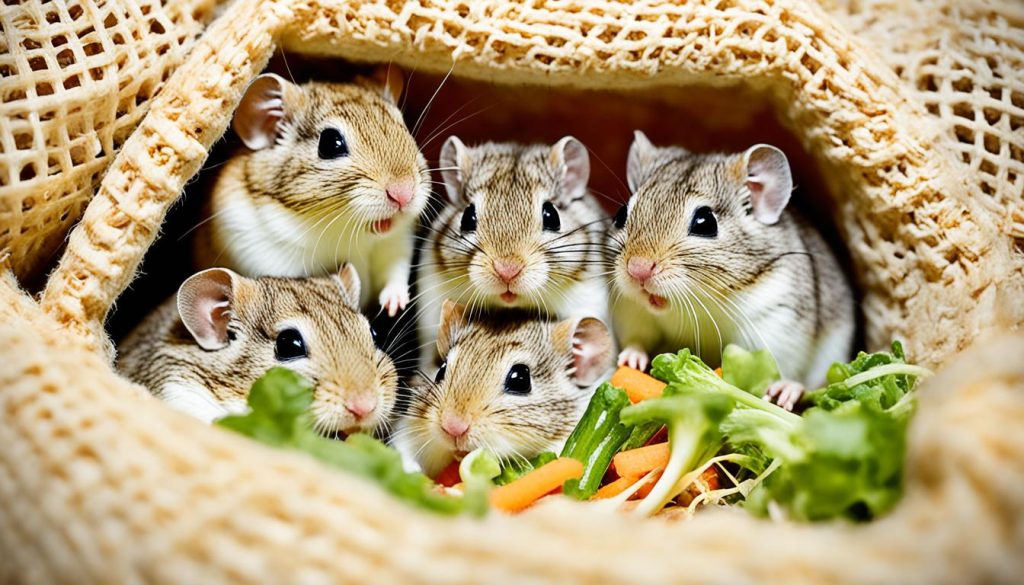
By understanding the specific dietary considerations for young gerbils and nursing mother gerbils, we can ensure that they receive the nutrition they need for optimal health. Providing a balanced diet that meets their protein, fat, and carbohydrate requirements is essential for their growth, development, and overall well-being.
What to Feed Your Gerbils
A gerbil’s diet should consist of three main components: lab blocks or pellets, seed mix, and fresh fruits and vegetables. These provide the necessary nutrients for their overall health and well-being.
Lab blocks or pellets: These are an essential part of a gerbil’s diet as they provide balanced nutrition, including the necessary protein and other essential nutrients. They are designed to meet the specific dietary needs of gerbils and ensure they receive a complete and well-rounded diet.
Seed mix: Seed mix is important for gerbils’ natural foraging instincts and should be scatter-fed to engage their natural behavior. It allows them to search and find their food, mimicking their natural habitat. This not only provides mental stimulation but also helps maintain healthy teeth and gums.
Fresh fruits and vegetables: Adding fresh fruits and vegetables to a gerbil’s diet is not only beneficial for their health but also adds variety and enjoyment to their meals. These foods provide additional vitamins and minerals, helping to boost their immune system. Offering a mix of different fruits and vegetables in small portions can keep their meals interesting and nutritious.
Remember, it’s important to remove any uneaten food after about an hour to prevent spoilage. This helps maintain a clean and hygienic environment for your gerbils.
Treats like mealworms, dried fruit, or fatty seeds can be given occasionally but should be limited in quantity. These treats can be used as rewards or for additional enrichment, but they should not make up a significant portion of their diet as they are often high in fat and may cause weight gain.
By providing a well-balanced diet consisting of lab blocks or pellets, seed mix, and fresh fruits and vegetables, you can ensure that your gerbils receive the necessary nutrients to thrive and maintain optimal health.
How Much to Feed Your Gerbils
Gerbils’ food intake can vary, but when it comes to portion sizes, a general rule of thumb is to feed each gerbil approximately 1 tablespoon of food per day. This tablespoon can consist of a mix of lab blocks, seed mix, and fresh fruits and vegetables, providing a well-rounded diet.
If you prefer, you can provide the entire tablespoon of food together or divide it into different foods on a feeding schedule. For example, you can give lab block food on specific days, while fresh fruits and vegetables along with seed mix can be given on other days. Such a feeding schedule can help ensure variety in their diet and keep them interested in their meals.
When considering the proportions of each food type, it’s important to maintain a balanced approach. A good guideline to follow is to allocate around 15% of the tablespoon for fresh fruits and vegetables, 35% for seed mix, and the remaining 50% for lab blocks. This combination ensures that your gerbils receive the necessary nutrients from each food group.
Remember, portion sizes may vary depending on the age, size, and activity level of your gerbils. Regularly monitor their food intake and adjust portion sizes as needed to maintain a healthy weight and overall well-being for your furry friends.
What Do Gerbils Eat in the Wild?
In their natural habitat, gerbils have a diverse diet consisting of grass, roots, bulbs, seeds, leaves, and some insects. They are adapted to arid conditions, where they primarily feed on the roots and bulbs of wild grasses. These food sources align with their burrowing behavior, as they can easily access them underground.
While gerbils can survive in arid environments, they still require access to fresh drinking water to stay hydrated. In the wild, they obtain moisture from natural water sources or through moisture-rich snacks, such as succulent plants or juicy fruits they come across.
Gerbils are not heavily reliant on a high-fiber diet like their counterparts, such as rabbits or guinea pigs. Their digestive systems are not designed to process large amounts of fiber. Instead, they obtain their necessary nutrients from a variety of sources like grasses, seeds, and other plant materials.
Conclusion
Providing a balanced diet is crucial for the overall health and well-being of gerbils. To ensure optimal nutrition, it is recommended to feed gerbils a combination of lab blocks or pellets, seed mix, and fresh fruits and vegetables. This diet provides the necessary protein, fat, carbohydrates, vitamins, and minerals that gerbils need to thrive.
When feeding gerbils, it is important to follow the recommended proportions and avoid excessive intake of protein, fat, or fiber. Understanding the natural food sources of gerbils in the wild can help in formulating an optimal diet for them in captivity. By replicating their natural food choices as closely as possible, we can ensure that their dietary needs are met.
Regular monitoring of gerbil’s food intake and adjusting portion sizes as needed is essential for maintaining their health. By paying attention to their dietary requirements and making necessary adjustments, we can promote proper growth and prevent nutritional imbalances.
Providing an optimal diet for gerbils is key to their overall well-being. By offering a balanced combination of lab blocks or pellets, seed mix, and fresh fruits and vegetables, we can ensure that gerbils receive the essential nutrients they need. By following these guidelines and monitoring their food intake, we can help gerbils live happy and healthy lives.

